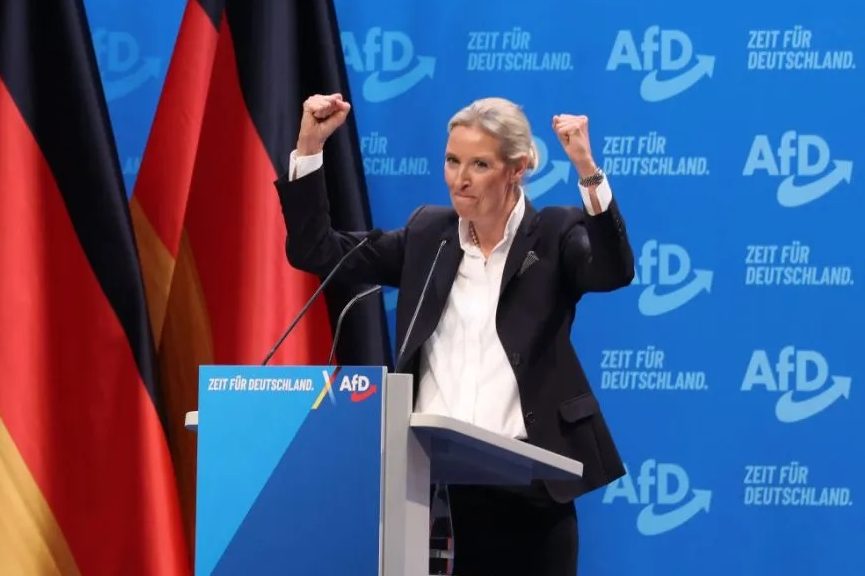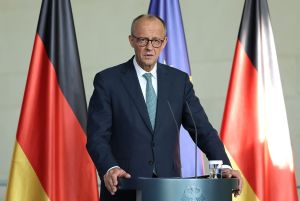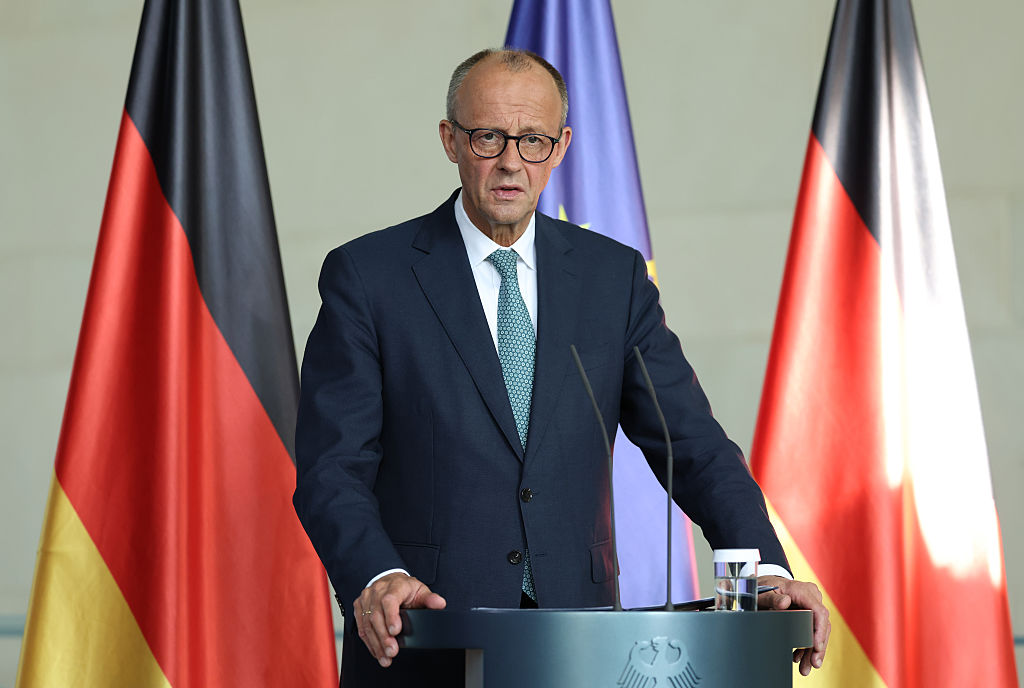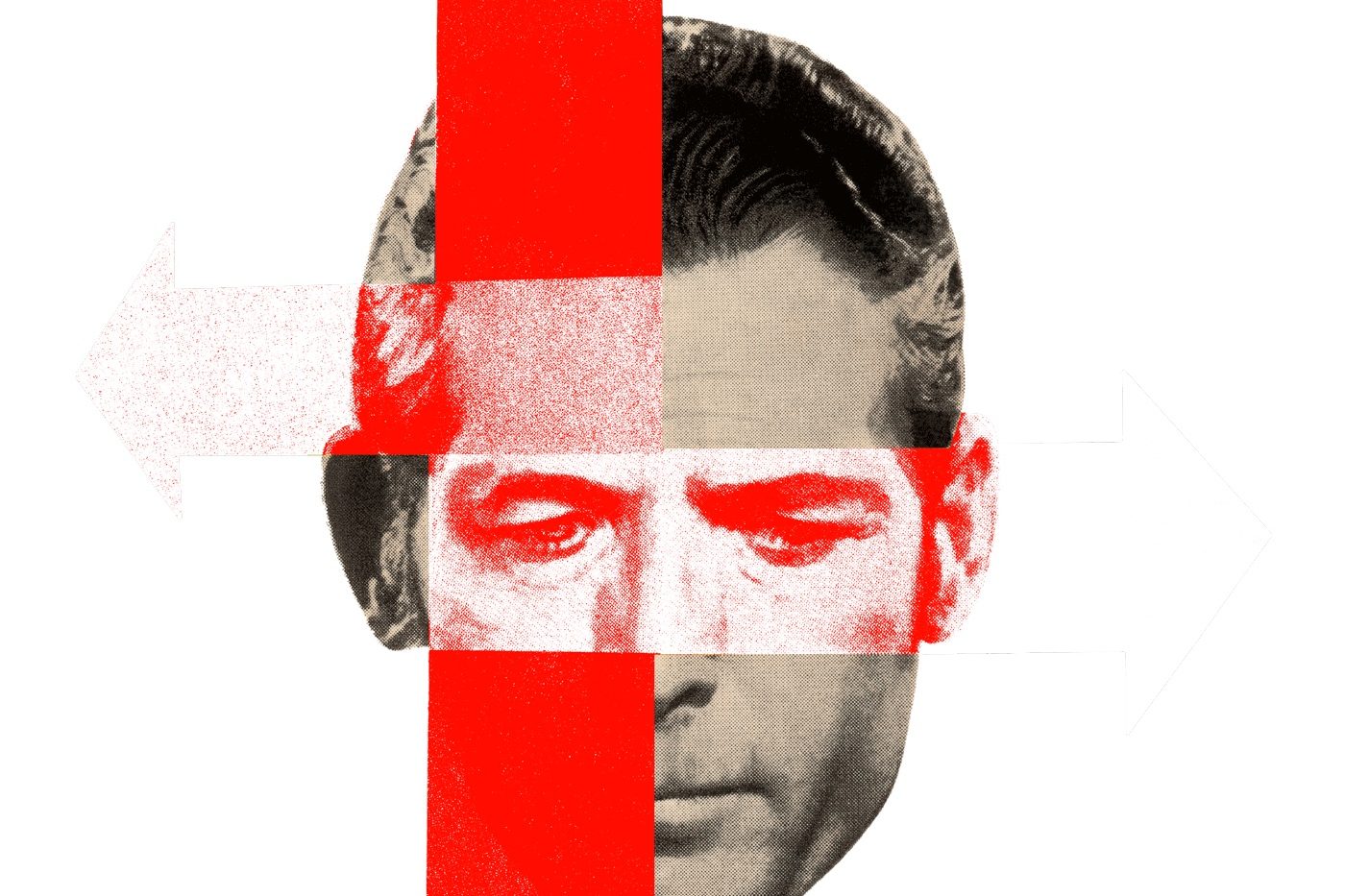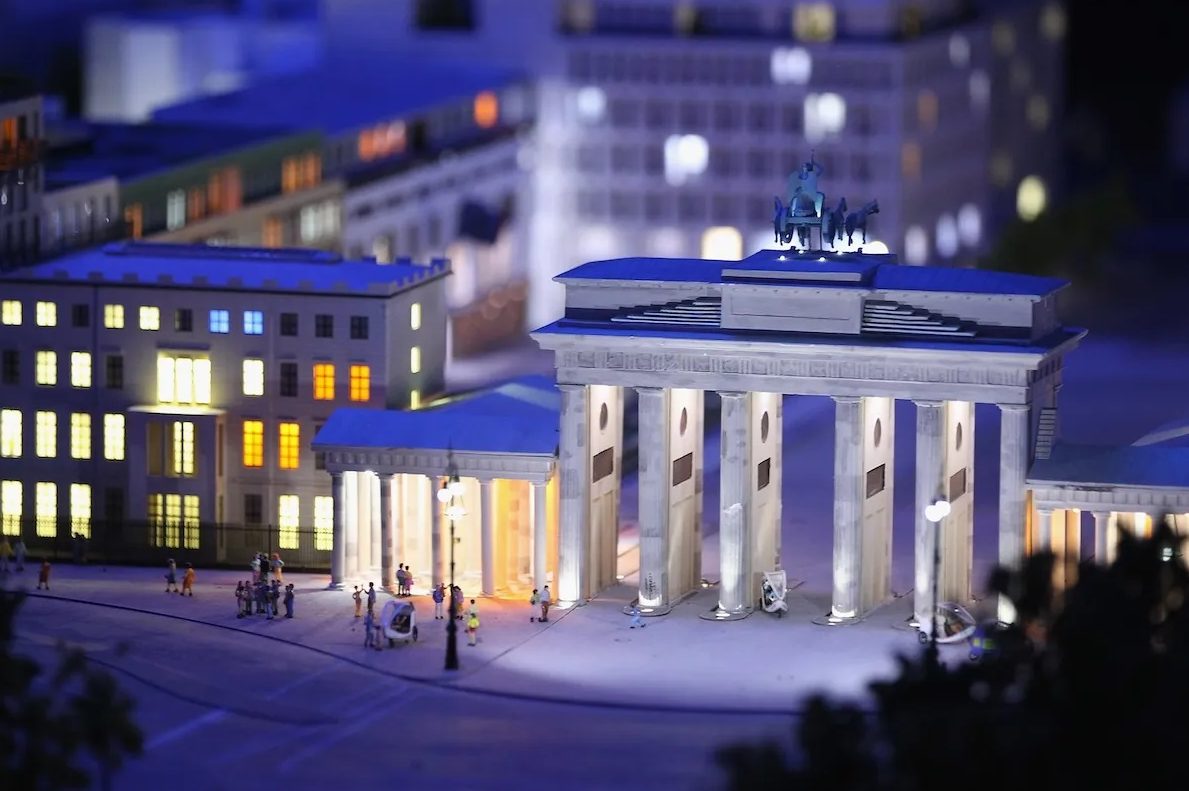With less than six weeks to go until voters head to the polls, the snap federal election campaign in Germany is finally heating up. The AfD is set to turn a third of Germany blue and clinch five of the country’s sixteen states in the party list vote: Mecklenburg-Vorpommern, Brandenburg, Saxony-Anhalt, Thuringia and Saxony. This should award the party approximately 19.7 percent of the vote — translating to 146 seats in the Bundestag.
These projected results banish any notion that Germany has moved on from its bisected past
Just in time for the weekend, the pollsters YouGov have released their first MRP survey, revealing the likely voting intention of Germans at a nationwide, state and constituency level. For Germany’s establishment parties, hoping to maintain the firewall against the insurgent far-right Alternative für Deutschland (AfD), the results make for grim reading.
All but one of the other states are projected to fall to the conservative CDU party, led by the man most likely to become the next chancellor, Friedrich Merz. They are on track to win 29.8 percent of the vote — or 222 seats in parliament.
The split between the states where the AfD is predicted to triumph versus the CDU is striking for one reason in particular: geographically, the divide exactly maps onto the borders separating the former East and West Germany. These projected results, then, firmly banish any notion that, just over thirty-five years on from the fall of the Berlin Wall, Germany has moved on from its bisected past in any meaningful sense.
YouGov’s survey was conducted over the course of six weeks, taking in the American tech billionaire Elon Musk’s interventions on behalf of the AfD and his fireside chat on X with the party’s co-leader Alice Weidel. Intriguingly, there is little evidence that Musk’s declaration that only the AfD "can save Germany" has boosted their numbers: if anything the AfD’s predicted vote share is approximately two percentage points lower than suggested by previous polls conducted before Musk and Weidel’s interview.
For current chancellor Olaf Scholz, still holding on to the pipe dream of returning to Berlin for a second term, it is increasingly obvious that he is hoping in vain. His social democrat SPD scrape in at third place, polling with a slightly lower than expected 15.6 percent in the party list vote. In a damning indictment of how Germans have come to view his party, the only state the SPD are projected to win is the city-state of Berlin — something that will do little to bolster their reputation for only representing the interests of a metropolitan elite.
If Scholz is lucky, the SPD will be asked by the CDU to join their government as a junior coalition party — although whether Scholz would remain as the figurehead of the party is another matter entirely. There is also the chance that Merz could turn to the Green Party — predicted to clinch 13.6 percent of the vote — to form a governing coalition.
For Scholz’s previous coalition partner, the FDP, their leader Christian Lindner’s gamble last November to break from the traffic light coalition and attempt to separate themselves from the tanking government appears to have backfired. According to YouGov’s poll, they are currently projected to fall short of the 5 percent threshold required to make it back into parliament at all.
The far-left Bündnis Sahra Wagenknecht (BSW) party may also be looking at the results with disappointment. A year on from its foundation, during which it appeared to be picking up momentum and popularity in the face of its peacenik anti-Ukraine stance, the party looks like it might be running out of steam. Polling at just 6 percent — just one percentage point above the threshold for parliament — this will further outrage the party’s officials who have been critical of the leader Sahra Wagenknecht’s minimal campaigning so far.
Germany’s federal election is scheduled for February 23 — and the country’s establishment parties will be hoping that much could yet change in that time. But one thing looks increasingly certain: while the CDU looks set to win the election, the party still on course to truly take the Bundestag by storm is the AfD.



